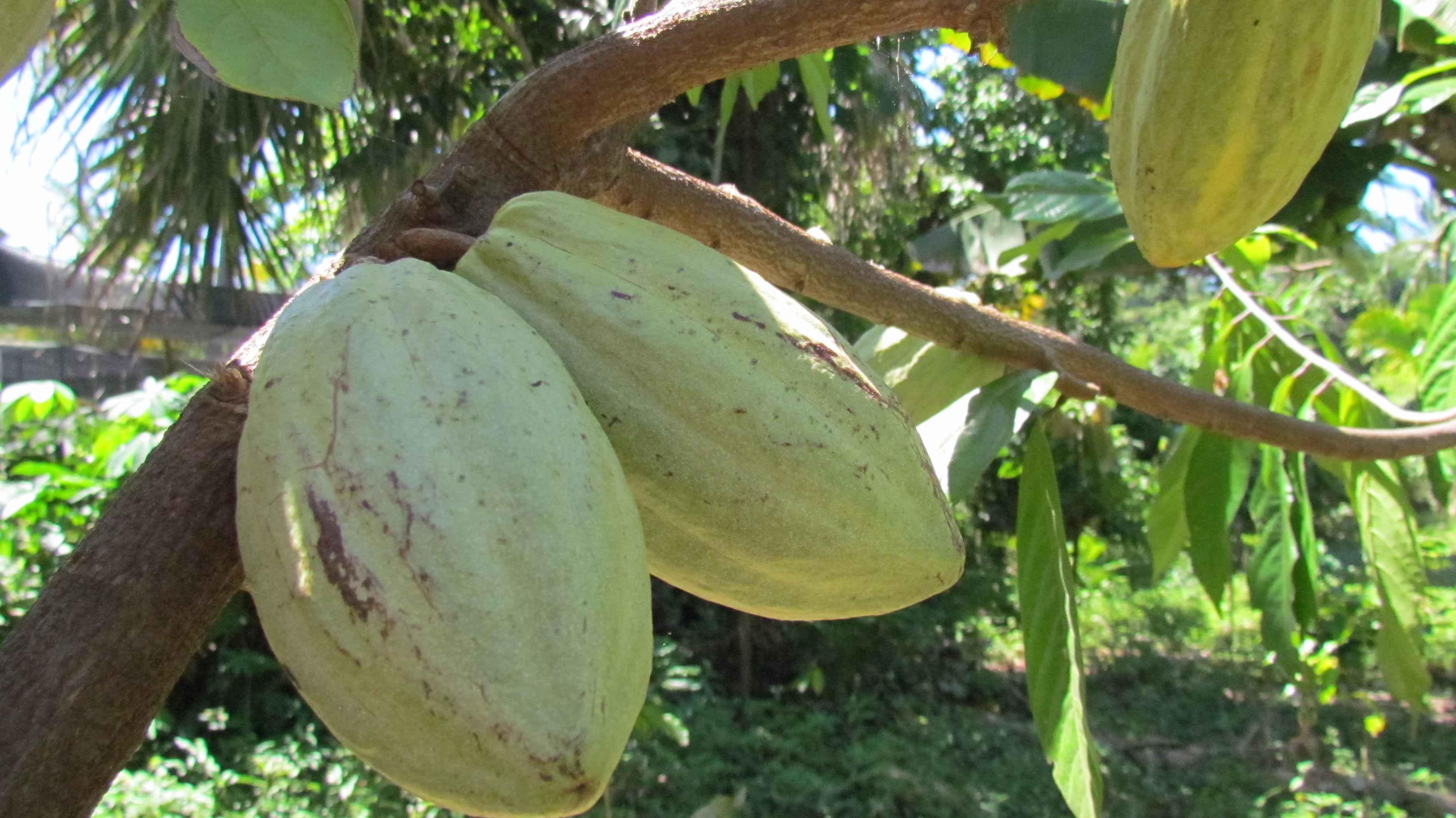![]() (342k) El Salvador Cacao Alliance
(342k) El Salvador Cacao Alliance
Despite the importance of cacao in pre-colonial Mesoamerica as a crop, and as the region’s first currency, cacao bean production is almost non-existent today in El Salvador. Private and public sector investment in cacao has been largely absent because of the severely limited access to genetic material and lack of production knowledge. El Salvador has a unique opportunity to reactivate cacao to mitigate slow economic growth, climate change, and plant diseases, such as coffee rust.
A $29.4 million Cacao Alliance with $10 million each from USAID and the Howard Buffett Foundation, $4.4 million from the U.S. Department of Agriculture (USDA), and $5 million from private sources, provides assistance to approximately 6,000 small farmers to help reactivate cacao production and exports in El Salvador.
The alliance, led by Catholic Relief Services, includes Lutheran World Relief (LWR), TechnoServe (TNS), CLUSA-El Salvador and Cáritas El Salvador. The Mexican Agency of Cooperation for International Development (AMEXCID) also supports this effort, as well as the Government of El Salvador through the Ministry of Foreign Affairs, and the Ministry of Agriculture and Livestock.
The activity expects to boost the agriculture economy and economic growth in 83 municipalities by positioning El Salvador as a net producer and exporter of high quality fine aroma cacao. The reactivation of cacao is expected to increase farmers’ incomes and food security, and generate up to 13,000 jobs in the cacao value chain (farm production, distribution and processing) if funding from all donors.
USAID assistance is also increasing biodiversity by restoring forests and generating resilience to global climate change. Through technical assistance to small farmers, approximately 6,000 hectares of cacao will be grown under diversified agroforestry systems. Cacao is also an alternative crop for coffee farmers in low altitude zones affected by coffee leaf rust, which caused heavy coffee crop losses.
By training producer organizations, supporting a national policy framework, and building institutional capacity in the cacao value chain, farmers will be better positioned to compete in the international cacao market.








Comment
Make a general inquiry or suggest an improvement.